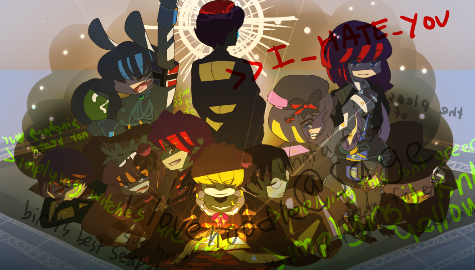|
>>
|
No. 34865
File
132675183664.png
- (126.90KB
, 512x512
, 00000102.png
)

>>34854
Well, in short; not really.
We have had games that follow knox and dine, and games that do not. I think it is more of a personal preference of the GM if the game will follow those or not.
I would say that no a game does not need a 'detective', but it is nice to have one. What I would considered the 'detective' would be a piece that is confirmed the players can trust, and know that they are not helping the culprit (well at least not knowingly) And in the end it is normally the piece that makes it to the end and solves things/dies trying. It is basically a piece that tries to figure things out and the players us, know they can trust. We know they are not assisting the culprit/s. But I guess that is incorrect, for without dine or knox, the culprit could be the 'detective' or the 'detective' could be helping. So I would suggest that if you don't use those rules, and use a detective at least confirm for the players that this character is innocent and can be trusted to some extent.
If we had a rule, I guess it would be to avoid logic errors. Which if you don't know what they are, are when reds either conflict with each other, or when a red someone forbids the answer.
examples for the 1st would be. This apple I'm holding is only red.
This apple I'm holding is black.
The two reds conflict with each other, creating confusion on what can be trusted.
The second would be, say the answer is the culprit left through the window. And a red like this was used: Nothing in the room was used to assist the culprit.
This red makes us think that nothing in the room helped the culprit, but the answer says the window is how the culprit help the room. This red completely throws the players off the path of reaching the answer.
Well those are some of my thoughts on the matter.
|


